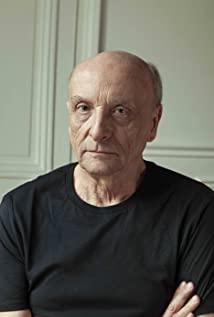Her appearance is like a fan, a big question mark. Why would she kill her own son? As a general audience, it is inevitable to speculate that it was a wrong killing, or alcoholism or something else.
The director reluctantly revealed the answer. But leisurely let the details of life flow in front of you. Juliette stayed at her sister's house, they ate dinner together, and briefly talked about life; sent her daughter to school, and her sister drove with Juliette; her sister and brother-in-law whispered in the room; went to a coffee shop with friends; went to an art gallery; friends and family gatherings; Juliette Walked into Grandpa's room and said she often needed books in prison; went to a coffee shop; applied for an interview and failed. Long table dinner, chatting. It's all narrative description. And, of course, Juliette's free and cold reaction. Before I knew it, I started to pay attention to Juliette's living space and her feelings.
Juliette, who is suspected and discriminated against by others, is also the object of curiosity for some social workers; her life is under the scrutiny of others, and it seems a little difficult to integrate into the life of a normal person. Most importantly, when she saw her relatives, she couldn't let go of the incident itself.
Guilty? Don't understand? prejudice? Or remember the lost little life?
When I was still in elementary school, there was a rapist in the neighborhood. Every time I see him, there is always a strange feeling, not just after being warned by my mother. Faced with a murderer, can we have no prejudice? A criminal who has served a sentence, should he or she still be dragging the tail of sin?
A young daughter (L) adopted by the younger sister, and the little girl's speechless grandfather, seem to have given an answer. L didn't know anything about Aunt Juliette's past, who was just a little silent, weird, but a friend. Grandpa didn't listen to foreign affairs and didn't say a word, and some were full of smiles, but he could let Juliette broadcast it and confide a few words. In their eyes, Juliette was no different from anyone else. Because there is no prejudice, because there is no language to explain.
The breadth of the different ideas of different people shown in the film is still very exciting. We can see not only the boss who drove Juliette away, but also the narcissistic man who only sleeps with her, and a friend who understands Juliette more. And her sister, as she and her sister got to know each other day by day, a lot of initial suspicions were also dispelled. The most popular is the teacher's sister criticizing Dostoevsky's writing on criminals in class. That's just a hypothesis, she said. His criminals have oneness.
While rich in rational examination and reflection, this film has the warmth that French films have always had. Juliette's heart knot slowly opened. In the end, she broke out in hysteria and vomited the original sin that had accumulated over the years. It turned out that it was because of love that he took his son's life. The imprint of life is projected on the raindrops that crash down the windows.
This is an answer for the film and the protagonist, but another question for us, euthanasia without legislative support, the good has become a sin. Is this how things should be?
View more about I've Loved You So Long reviews











